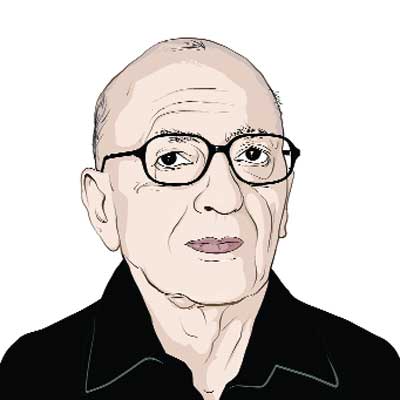Opinion Jostling for Junagarh
How the little princely state became a war of wills between Indian and Pakistan...
Chronologically,the story of Junagarh ought to have been told earlier than that of Operation Polo in Hyderabad (IE,May 31). But so sinister were the Nizam of Hyderabads machinations,in collusion with Pakistan and the British Conservative Party,to establish his sovereignty over his state,and so crucial the integration of that state with India that the Hyderabad saga had to take precedence. Moreover,unlike Hyderabad that was of the size of France with a population of 20 million and an army,railway and postage of its own,Junagarh was a tiny state in Kathiawad,a Gujarati-speaking region that was a mosaic of princely states whose territories crisscrossed one anothers. Neither Hyderabad nor the small state that eventually merged with Gujarat had any contiguity with Pakistan,but the latter boasted of a coastline with a functioning port at Veraval though more than 300 nautical miles south of Karachi,Pakistans principal port and then capital. However,Junagarh had one thing in common with Hyderabad: Both had Muslim rulers and predominantly Hindu populations. Furthermore,the famous temple of Somnath,the holiest of a string of Hindu shrines in the area lay within Junagarh.
After prevaricating about his intentions for several weeks and ducking meetings with V. P. Menon,secretary of the states ministry in New Delhi and chief negotiator with the princes,Nawab Mohabat Khan of Junagarh announced the accession of his state to Pakistan on August 14,1947. For reasons still unknown,Pakistan sat on the Nawabs request for accession for a month,and accepted it only on September 13,apparently in the belief that Junagarh could be used as a bargaining chip in relation to Kashmir. By then it was too late because a lot else had happened in the meantime to queer the pitch for Pakistan.
Indian leaders were understandably incensed by the Nawabs declaration,Sardar Patel,the Iron Man uncompromising on Indian unity and belonging to Gujarat,more than everyone else. The first thing he did was to secure the accession to India of Junagarhs two tributary states,Mangrol and Babriabad. As expected,the Nawab protested that his vassals had no right to do what they had done. The Sardars reaction was to send a small army contingent to protect the twosome. Around the same time,in the city of Bombay,a provisional government of Junagarh was formed. Its head was Samaldas Gandhi,a nephew of the Mahatma and a resident of the princely state.
A vigorous agitation against the Nawabs proclamation and for a popular government in the state followed. In sheer panic,the Nawab fled to Pakistan,taking with him his family,of course,and 12 of the 2,000 pedigree dogs he owned.
The man left holding the baby was Junagarhs newly appointed dewan or prime minister,Sir Shahnawaz Bhutto,a Muslim League leader close to Pakistans founder,Mohammed Ali Jinnah,and father of the more famous Zulfikar Ali Bhutto. He tried to tread softly but found the going very tough. Thus it was that Junagarh turned into a critically important contest between India and Pakistan. Its denouement was to become a precedent for the much larger states of Hyderabad and Kashmir.
From the word go,Jinnah had insisted that on a princely states accession to either of the two dominions (as India and Pakistan were then) the rulers word was final and no one else could have any say in it. The British government stated that technically Jinnah was right but there were several other important considerations about accession that could not be ignored. Nehru argued emphatically that whoever might be the ruler and whatever his predilections,the wishes of the people of the state were supreme and must prevail.
These,he added,could be ascertained through a plebiscite,when and wherever necessary. Ironically,Junagarh and its accession to Pakistan provided him with a perfect opportunity to establish the principle he stood for. (Mountbatten,though governor-general of India had friendly relations with Jinnah. He privately conveyed to his opposite number that Pakistan could not have chosen a worse Indian state to accede to it.)
Isolated and helpless,Sir Shahnawaz found that his position was becoming more and more untenable. On October 27 incidentally,the day on which Pakistan first invaded Kashmir he wrote to Quaid-e-Azam that after accession to Pakistan,the Nawab and he were initially flooded with letters of congratulations. But it now seems that Muslims of Junagarh have lost all their enthusiasm for Pakistan. Precisely ten days later,he threw in the towel,and informed the government of India that he would like to hand over the administration of Junagarh to it. After a brief discussion,the formal transfer took place on November 9 when the regional commissioner at Rajkot,M. N. Buch,took over.
It was then that Nehru made his point. He held a plebiscite in Junagarh on February 20,1948. Mountbatten who,in view of what had gone over Junagarh and the fighting that was going on in Kashmir,was anxious to avoid a general India-Pakistan war backed Nehru fully. Ninety one per cent of Junagarh voted for accession to India. This triggered an intriguing change of heart on Jinnahs part. Having rejected a plebiscite out of hand,he suddenly told Mountbatten that he would settle for a plebiscite in Kashmir. But his conditions for it were such that Mountbatten knew India would never accept them.
A narration of the Junagarh episode cannot be complete without a fascinating footnote. A full 32 years later,in April 1980,three months after Indira Gandhis return to power,Pakistans then president,General Zia-ul-Haq,first met her at Harare during Zimbabwes independence celebrations. On arrival he presented her an autographed,coffee-table book on his country. She opened it only after he had left and was furious to find that the map on the books front piece showed not only the whole of Jammu and Kashmir but also Junagarh,Mangrol and Babriabad as parts of Pakistan. Instantly,she ordered two of her aides to take the book back and return it to the military ruler personally.
The writer is a Delhi-based political commentator.


